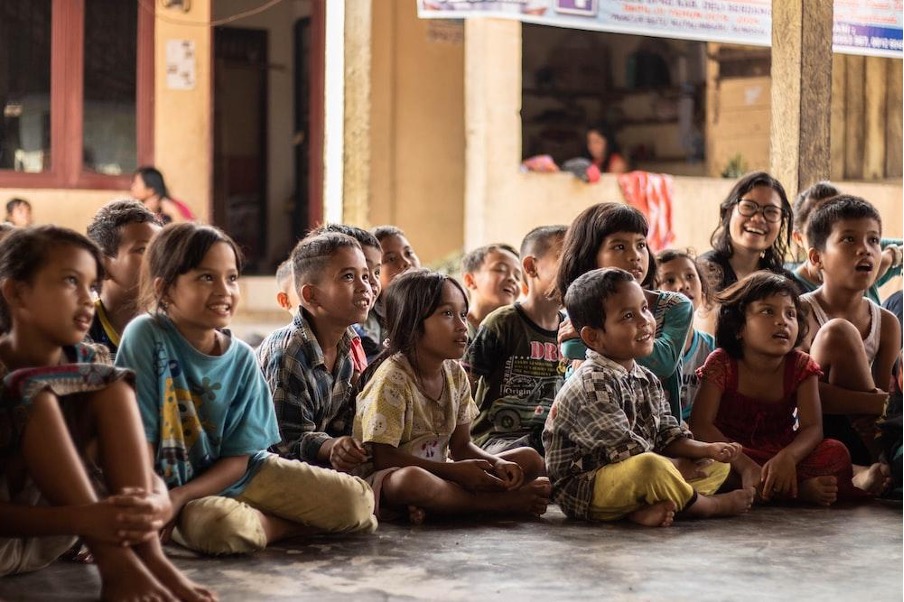Fundación Esperanza Contigo, A.C.
NEWS WITH HOPE
How Does Homelessness Affect a Child's Education?
Octubre 17, 2022

Image Source: Unsplash
Education is a means for homeless children to break the cycle of poverty and achieve a better future. A solid education can be the foundation of a child’s future, but when they grow up without a permanent home, it’s much more challenging to get a quality education.
If a child is homeless, they will face many hurdles in their educational journey. They may have to change schools frequently during their school year due to moving from place to place or changing guardians often, which can make it harder for them to keep up with schoolwork.
Additionally, being homeless can negatively affect a child’s self-esteem and even impact their academic performance if they have trouble focusing on tests or homework because of stressors outside of school.
What Are the Effects of Homelessness on a Child's Education?
Homelessness has an impact on every child’s ability to learn, but some children are at a higher risk of being negatively affected than others. Young children are particularly at risk for developmental delays and behavioral problems due to the stress of homelessness, and teens may find it more challenging to stay focused on their studies.
Homeless children may face various academic challenges, such as a lack of academic support, frequent school changes, a decline in self-esteem, and difficulties in paying attention and staying focused in class.
Homeless children may also have trouble accessing services and support that they need, such as special education services, health care, and school lunches. This can make it more difficult for these children to succeed in school.
Frequent School Changes and Moving From Place to Place
Schools are supposed to be a safe environment for children to learn, socialize, and grow. However, homeless children often have to change schools frequently or change guardians, and they often have to do this without warning, making it difficult to maintain friendships or keep track of schoolwork.
Homeless children change schools at least once a year, and lots of them change schools multiple times each year. Moving from place to place often means adjusting to a new school. In countries like Mexico, where the government care system for abandoned children is very poor, children are forced to move from one foster home to another due to a lack of supplies or resources.
Self-Esteem and Depression Issues
School tends to be where children learn about positive self-esteem, but homeless children may struggle with this due to their situation. It can be difficult for a child who is experiencing homelessness to maintain positive self-esteem.
Often, these children move frequently and have trouble keeping friends, which can hurt their self-esteem. They may be teased because they have to wear the same clothes every day in a public school since they don’t have enough resources and a consistent place to do laundry, or they may be bullied because they don’t have the same toys or gadgets as other kids.
Homelessness can also cause depression in children. Frequent moves, not being able to be consistent at school, and having to change schools can all cause a child to feel depressed.
Additionally, having to live with guardians or in a shelter can be traumatic for a child. These situations may bring up feelings of sadness and create a difficult environment for children to grow and learn in.
Difficulty in Paying Attention and Focus Problems During Classes
Homeless children may struggle to pay attention in class and stay focused on their studies. This may be because they feel distracted by the stressors of living in an orphanage or trying to get by without a consistent place to live, or they may be dealing with health issues or other issues that distract them from school.
Children who are homeless may also struggle with reading, writing, or math if they miss out on important support due to their situation. Some schools offer literacy and numeracy programs for children who need extra help with reading, writing, and math, but homeless children may not have access to these programs.
This can make it harder for these children to succeed in school and meet their academic milestones.
Homelessness has far-reaching effects on a child’s ability to learn. The stress of being homeless can interfere with a child’s ability to focus at school and keep up with their studies.
Homeless children also tend to miss a lot of school, which can lead to them falling behind and not reaching their full potential.
At Fundación Esperanza Contigo we are sure that education is the best tool a child can have to change their future.
Every year we commit to creating programs to improve the education of the children of the shelters in Tijuana, Mexico, and provide them with the necessary tools to be able to build a better future.
Become a volunteer to improve the lives of these children. Your donation can change their reality.
Comprometidos
Con la sociedad
Gracias al apoyo de nuestros donantes, así como al esfuerzo de nuestra red de voluntarios, aliados y equipo de trabajo, hemos logrado impactar positivamente la vida de niños y jóvenes en situación de abandono en toda la ciudad.
Involúcrate